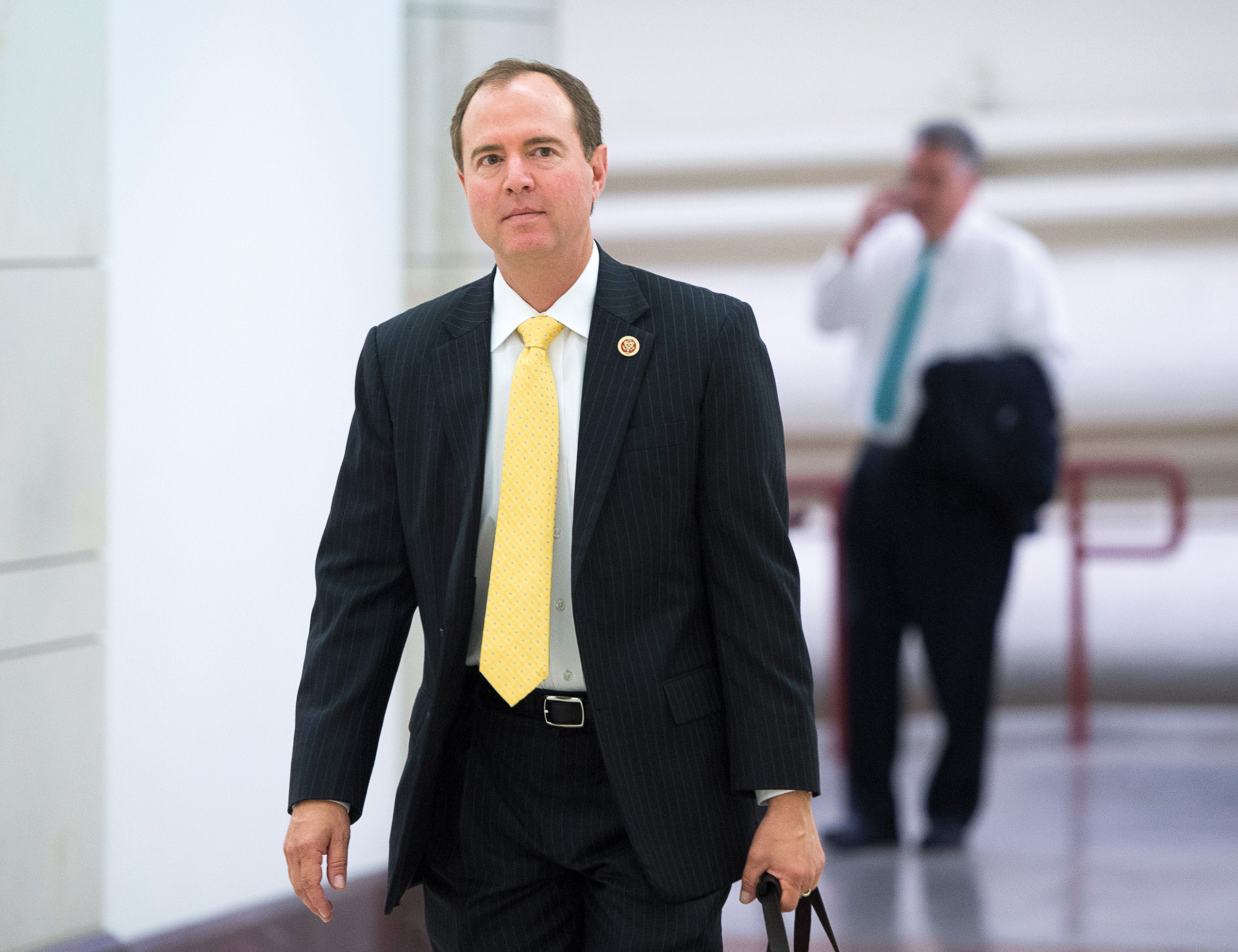The most likely place to find Congressman Adam Schiff ’85 these days is in a suite of windowless offices three floors below the Capitol.
Schiff can’t discuss much of what he reviews in this underground “bunker” when he speaks with constituents back in his Southern California district—or even with most of his own staff. Such is the routine since he became the top Democrat on the House Permanent Select Committee on Intelligence in January.
“It’s deeply interesting, but also very isolating and very time-consuming,” Schiff said. “But given the broad array of threats to the country these days—from ISIS and Al Qaeda to a newly aggressive and expansionist Russia to an ascendant China to Iran negotiations—there’s no shortage of a need for good intelligence.”
After 15 years in Congress, Schiff has emerged as a leading Democratic voice on national security—not an entirely unexpected outcome for someone who began his career as an assistant U.S. attorney prosecuting an FBI agent for espionage.
Schiff wasn’t always certain he wanted to be a lawyer. Born in Massachusetts, he grew up in Scottsdale, Arizona, and Alamo, California, where his father owned a lumberyard. He considered himself pre-med at Stanford while majoring in political science and wound up taking both the MCAT and LSAT before enrolling at Harvard Law School.
“All my pre-med friends thought I made the right decision, and all my poli sci friends thought I made the wrong decision, and then I went into politics and everyone thought I screwed up,” Schiff joked.
He worked as an assistant U.S. attorney for six years in California, where he prosecuted an FBI agent in a sex-for-secrets case. When a fellow prosecutor ran for the state Legislature, Schiff said, he started thinking about doing the same.
In his fourth try for public office, Schiff won a seat in the state Senate in 1996. The Los Angeles Times named him one of the “stars of the freshman class” for his ability to negotiate and build consensus. (Another Times story labeled him a “tenacious technocrat.”)
In 2000, he defeated Republican James Rogan, in what was then the most expensive ever House race, to represent a Southern California district that included Burbank and Pasadena.
He landed seats on the International Relations and Judiciary Committees. His priorities included intellectual property rights—an issue of particular interest to the Hollywood studios within his district—and juvenile justice. His experience as an AUSA explains why he was tapped to serve as a prosecutor during the 2010 impeachment trial of a federal judge. “It’s a very hot bench,” said Schiff of the panel of 12 senators who heard the case.
His investigative background also explains why then Speaker of the House Nancy Pelosi had asked him in 2008 to serve on the Intelligence Committee, which was probing the destruction of CIA interrogation tapes.
He has pushed for the revision of the Foreign Intelligence Surveillance Act and for a new authorization for the use of military force aimed at ISIS, questioning whether the one approved by Congress in 2001 after the 9/11 terror attacks is applicable to the newer threat.
Schiff’s role as a leading voice on national security for congressional Democrats was previously filled by Jane Harman ’69, another Southern Californian who served as top Democrat on the Intelligence Committee, said Michael Genovese, a political science professor at Loyola Marymount University in Los Angeles.
“He’s not flashy, he’s not bombastic, he might not be the most charismatic person,” said Genovese, “but he’s demonstrated very prudent judgment, and he’s a very solid source for what Democrats are thinking about national security issues.”
Beyond national security, Schiff has taken up the cause of getting Turkey to recognize the Armenian genocide, learning enough Armenian to deliver a speech in the language on the House floor, a gesture appreciated in his district, which is home to a large Armenian population.
Schiff was briefly mentioned earlier this year as a potential Senate candidate after Barbara Boxer announced plans to retire, news that came the same day he was named top Democrat on the Intelligence Committee. He said he gave a run “serious thought” but was “reluctant to leave” the new post. Still, he’s not entirely ruling out a run for higher office in the future.
“There will be other opportunities down the road,” Schiff said.
